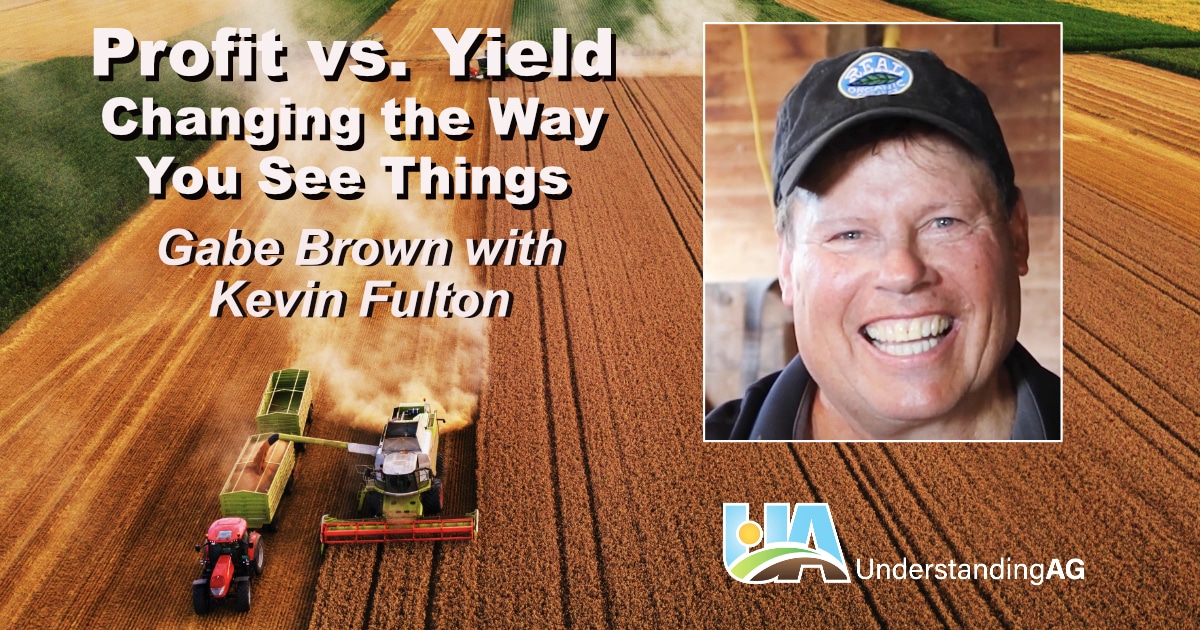
Many of you have heard me tell the story how, in 1997, while attending a conference, I heard rancher Don Campbell say, “If you want to make small changes, change the way you do things; but if you want to make major changes, change the way you SEE things.” That simple, yet profound, statement changed my life, and it is changing others’ lives as well.
I first heard of Kevin Fulton from Sherman County Nebraska long before I met him, and it had nothing to do with his farming and ranching. Kevin was a world champion powerlifter. In 2001, at the age of 41, he became only the second American and the 14th person to have ever lifted Scotland’s famous 775# Dinnie stones.
Kevin is a three-time International Weightlifting champion. He competed for 27 years, winning many titles and he still holds a number of world records. He became a coach and mentor, training many Olympians and world-record holders.
Kevin continues to serve as a mentor today, not only in powerlifting, but in REGENERATIVE farming and ranching and Kevin shares with us how he returned to his family’s farm and “changed the way he saw things,” and how that impacted his soil, farm, profits and future.
In Kevin’s words:
When I quit my high-profile job at the University of Massachusetts 30 years ago and came home to farm in Nebraska, I started growing corn and alfalfa, relying on lots of inputs to maximize my yields. It didn't take long for me to get disillusioned with high-input, chemical-based farming: After I paid all my bills, there was rarely any profit left for me.
Everyone talks about farming as a lifestyle. That may be true, but farming is a business first. If you want to keep doing it, you have to make a profit. Bankers don't care how many bushels you produce. They want to be paid in dollars. They also want to see that your business is profitable!
My profits improved the first year I began farming regeneratively and organically. I've found that the key to maximizing profitability is to reduce or even eliminate inputs, and then add value on the marketing end. Not only are my seed costs lower than conventional GMO seed costs, I'm also immune to all the outrageous fertilizer prices, which are now 3-4 times higher than what they were a couple years ago. I haven't purchased any chemicals or commercial fertilizers in over 20 years. My cattle graze year-round and are integrated into my cropping system using an Adaptive Multi-Paddock (AMP) system. This symbiotic relationship improves soil health and fertility. Using these practices, I've been able to increase the soil organic matter on my crop fields from 1.5% to over 6%.
Because of the money I save on inputs, combined with my value-added premiums, my profit levels are much higher. Organic markets are also less volatile, and the demand continues to increase for our products. The goal in my farming business is to average at least $1,000 per acre in NET profit on my cash grain crops year-in and year-out. Some years we exceed that, other years it has been less, but we have always made a decent profit.
That definitely wasn't the case when I farmed conventionally. So many farmers have been brainwashed into prioritizing their yields over their profits, only to become serfs on the land beholden to the large ag conglomerates selling high-priced inputs that will supposedly improve production. In reality, the corporations are the ones who are reaping the profits, not the farmer.
And the thing is, when you prioritize profit, you don't need as many acres to make a good living. The "get big or get out" mentality has tricked farmers into spending millions to expand their operations while overlooking profitability. Even more troubling, it creates an attitude where it becomes more important to have your neighbor's land than it is to have your neighbor. And that trend has led to the demise of our rural communities.
Farmers deserve to make an income that is congruent with any other profession in the community. To achieve that, we need to radically change how we talk about success. High yields are great, but at the end of the day, a farm must be profitable.
Focusing on ways to stay profitable will help us keep the farms we have—and, more importantly, will help attract more young people to the profession. With the average American farmer being almost 60 years of age, we are going to need a lot of new farmers on the land in the near future. Regenerative practices can help achieve the level of income and quality of life that is needed to make our profession attractive to future generations!
Kevin’s change of mindset, prioritizing net profit per acre over per-acre yield, provided the gateway to a healthier business, a better way of life and a more hopeful future. If we simply open our minds and change the way we SEE things, it can do the same for us. *Be sure to watch this short video of Kevin on his farm, talking about his new, profit-over-yield mindset.
And remember, your farm, your ranch, is a direct reflection of you!
Gabe Brown, Managing Partner
Understanding Ag, LLC
